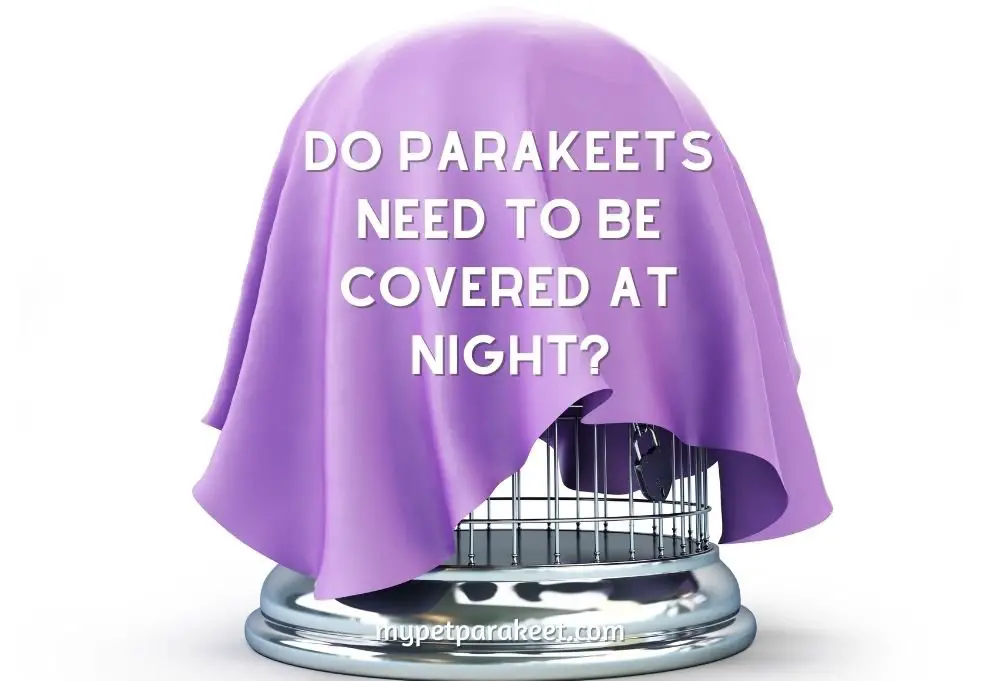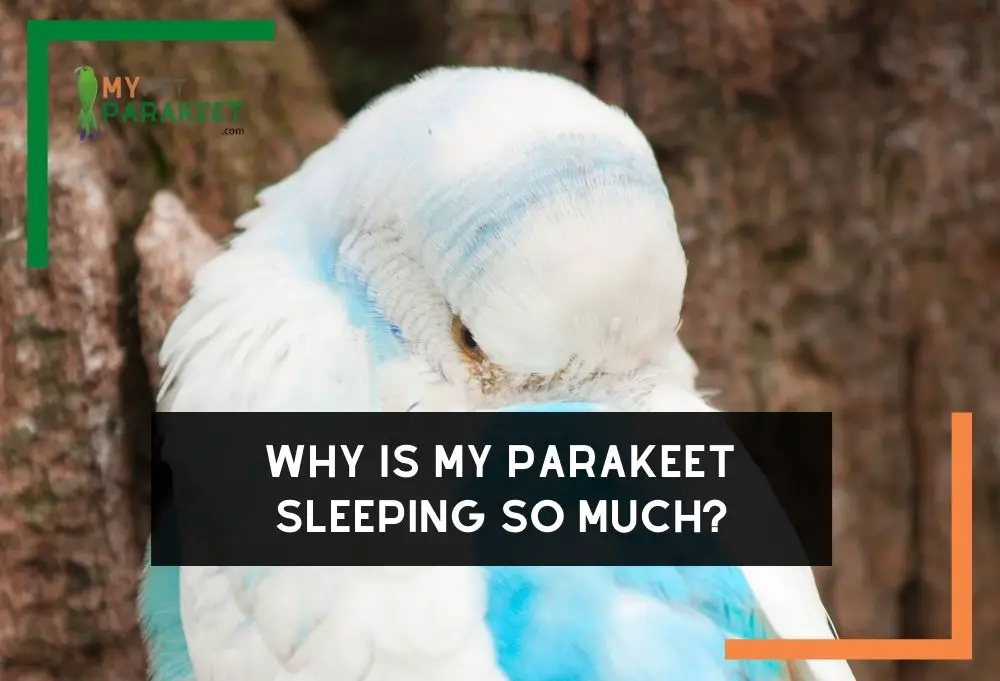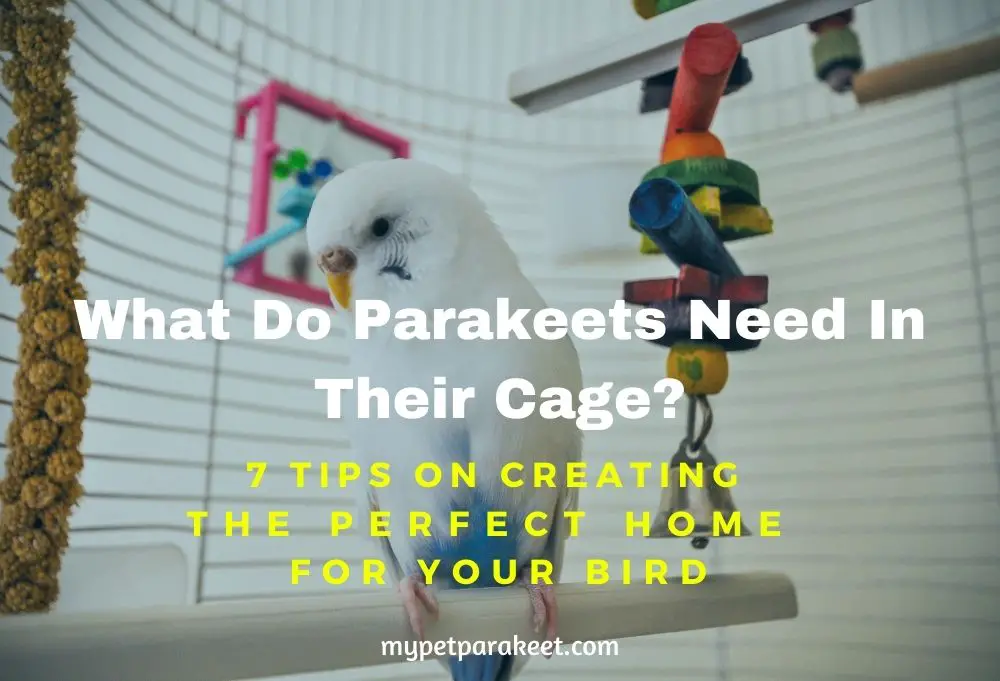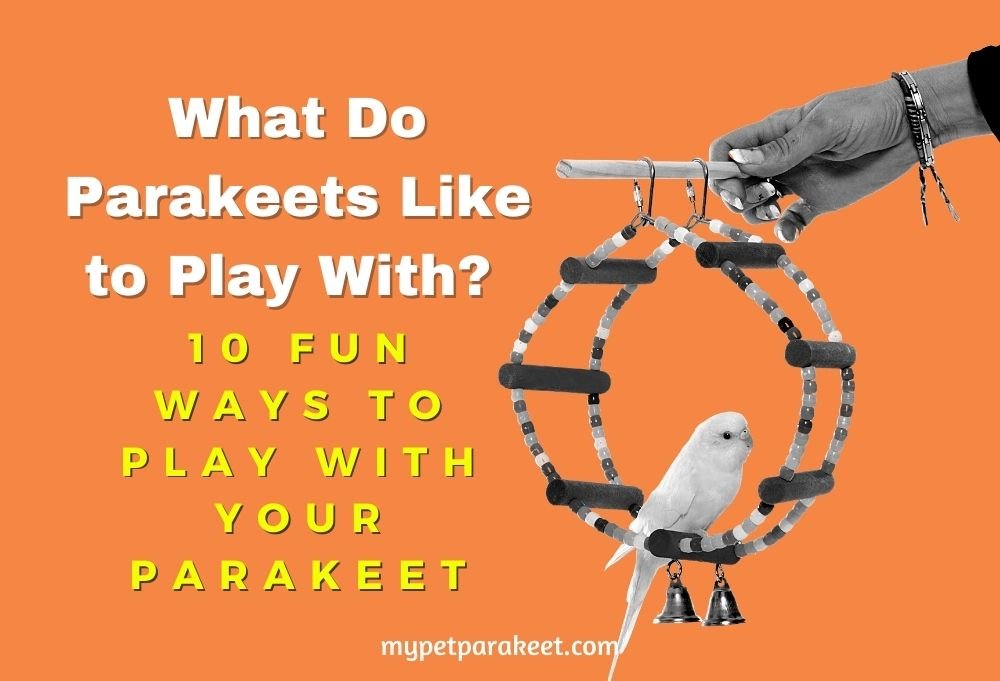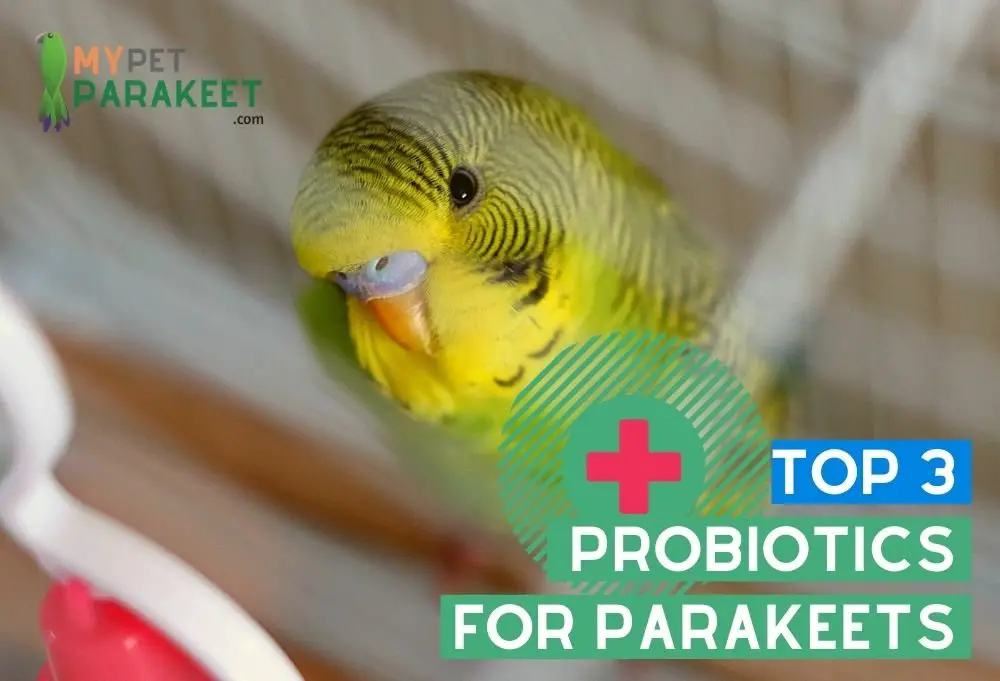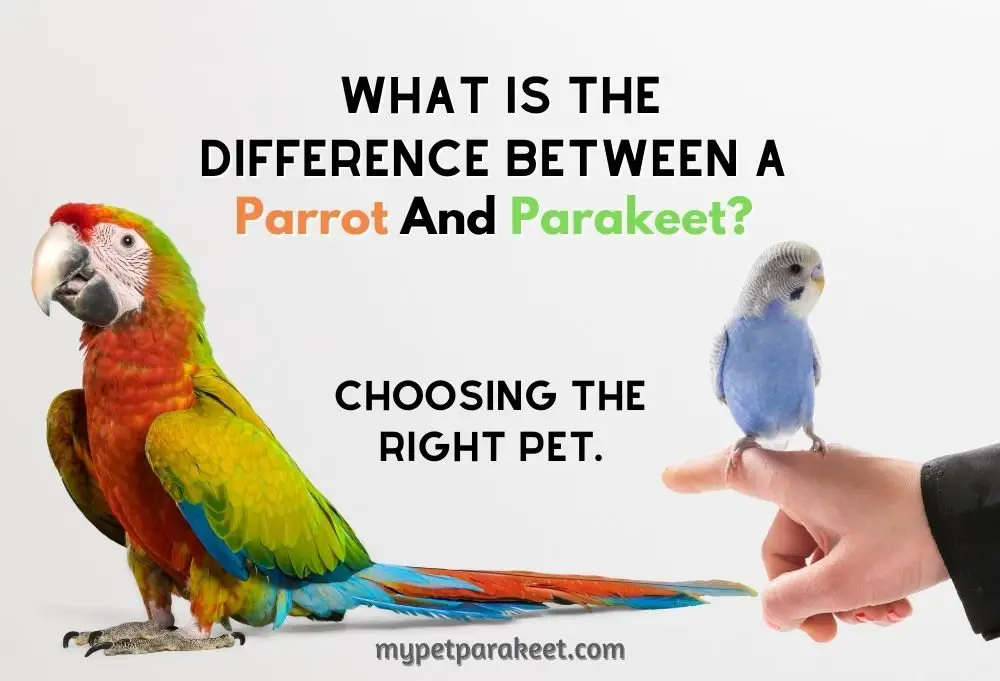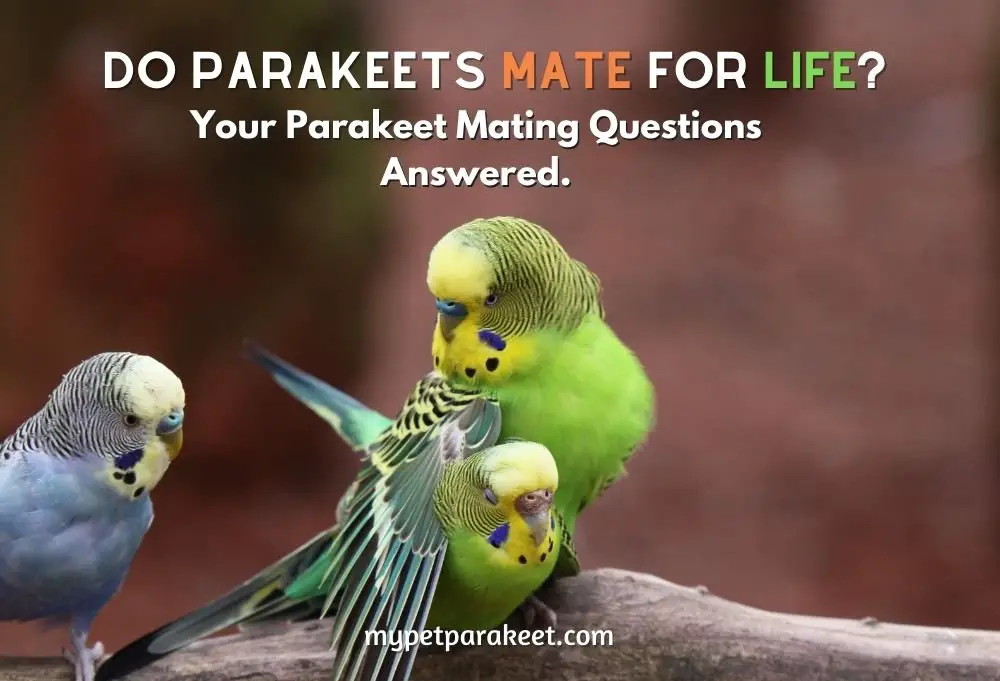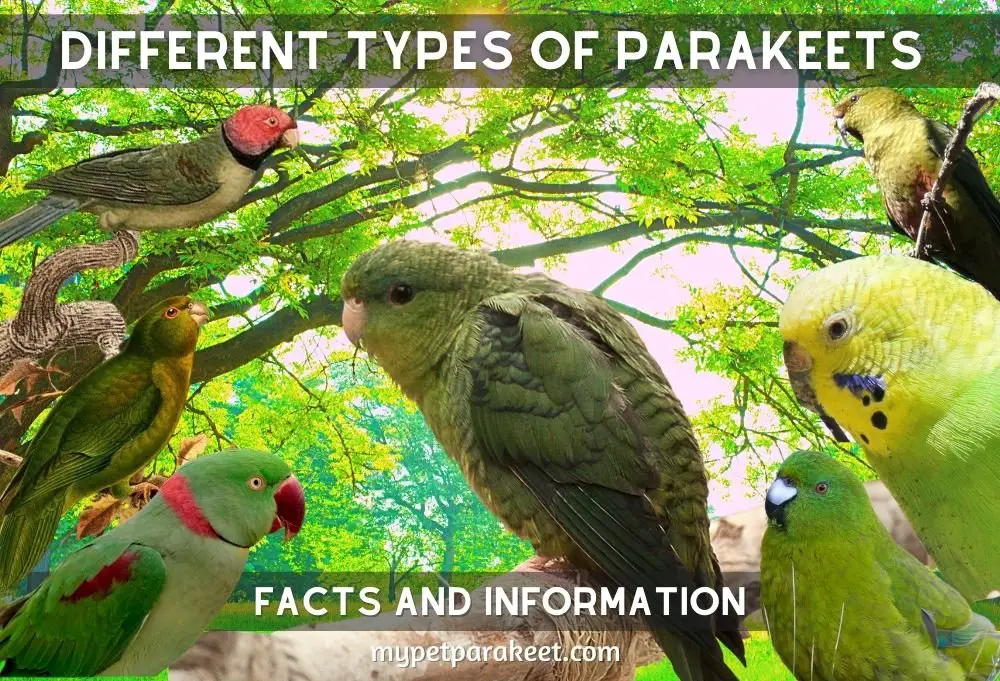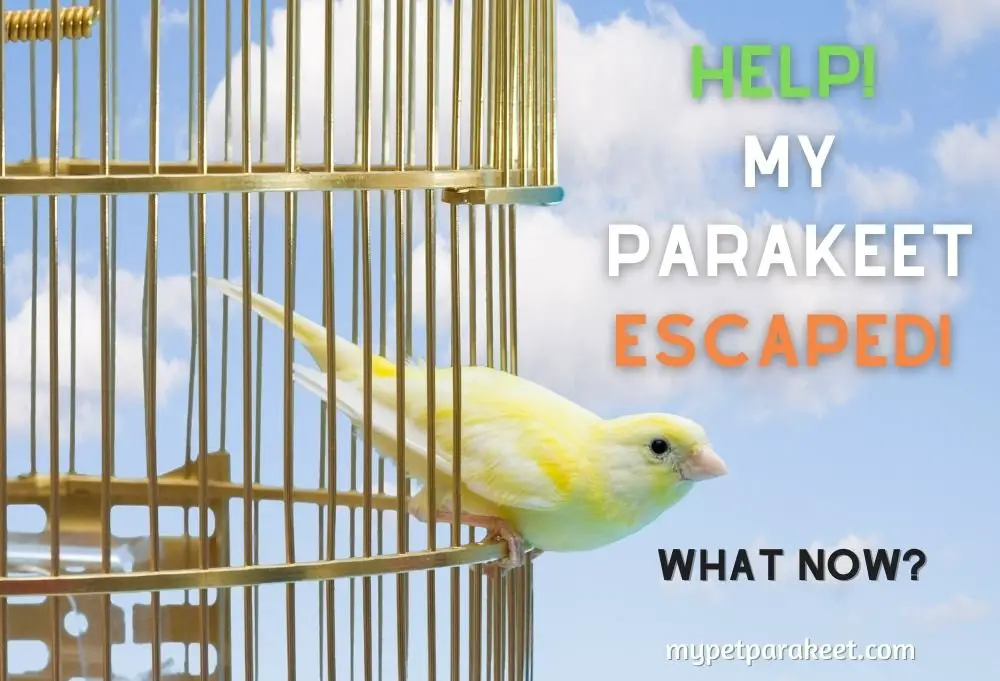Many parakeet owners wonder, “should parakeets be covered at night?” In this article, we will explore the pros and cons of covering your bird's cage at night.
So, do parakeets need to be covered at night? It depends. Covering your parakeet's cage each night is not required, but it may provide a sense of security and privacy for your bird. This will depend mainly on what your parakeet prefers; for some, covering their cage at night can be rather scary.
Covering the cage at night can also help protect your parakeet from things such as drafts from open windows or doors, which could seriously harm your pet's health. Ultimately, whether you choose to cover the cage or not will be determined by your parakeet's preference.
Why Do We Cover Bird Cages?
A Brief History Of Cage Covering
Pet bird owners tend to cover their birdcages at night because, in the wild, many bird species tend to sleep in holes in trees (nest cavities). This is especially true for the parrot and all of his cousins (parakeets included)
In the wild, these nest cavities would protect and shield the bird from heavy rains, heat, and predators.
In captivity, your parakeet does not have the same concerns. However, Covering your bird's cage with a cloth at night is like creating a nest cavity. It also shelters your parakeet from any light that's in the home, as well as eliminating drafts caused by air conditioning or an air purifier if you have one.
We have always covered our parakeet cages at night as it reduces noise and light and makes the birds feel secure, and shows no signs of distress.
The Best Parakeet Cage Covers
If you do decide to buy a cover for your parakeet cage, it should be large enough to cover the whole cage, or at least provide a tight-fitting dome that is capable of turning in on itself.
You also want to make sure you buy one that is lightweight and not made of heavy fabric, so it is breathable for your parakeet.
A parakeet's cage cover should be easy for you and the bird to use, sturdy enough that it won't slip off or tear when your pet tries to climb on top of it and made out of an untreated, non-toxic material such as cotton cloth (or other natural fibers).
Lastly, it should be machine washable and easy to clean as parakeets can be very messy!
If you do not want to add another parakeet item to your shopping list, however, it is perfectly fine to use a lightweight blanket to cover your bird's cage at night.
If you are undecided on whether you should cover your parakeet at night, then maybe consider how well your bird currently sleeps or if he is awake at night making loud noises. This is usually an indication that your parakeet needs some help with bedtime.
Are Parakeets Loud At Night?
At night, it is natural for parakeets (and most birds) to be less active. Although this may not apply to some species where singing at night is a sign of territorial aggression, most birds living in captivity are more prone to quieter behavior during the nighttime hours.
Most breeds of parrots in particular often become very quiet at dusk and throughout the night.
The sound of a parakeet's call will vary depending on the type and personality. Some are very quiet, while others do not hesitate to loudly proclaim their presence at any hour!
If your parakeet has become excessively loud, he may need to be covered at night. Or it could be a sign of something else.
Possible reasons for noisy nighttime behavior include:
– A change in the parakeet's environment, such as a move to another room or introduction to new pets or family members. Parakeets do not like sudden changes and will often vocalize more at night than during the day when they feel safe.
– A change in the parakeet's diet. Any sudden changes to a bird's food should be avoided, as this could lead to digestive problems and other health concerns leading him to make noise at night.
– The presence of an intruder or unfamiliar person who has entered the room where the parakeet is kept at night, which can cause stress for any pet.
Do Parakeets Get Night Terrors?
Yes, some species of parrots do experience “night terrors,” especially cockatiels. So it is quite possible for parakeets to get night terrors, also.
A child's cries and disorientation can characterize night terrors. Some common symptoms are thrashing around the cage or sleeping quarters, face pressed against the cage bars or aviary glass, body rigid, head drawn back with mouth open forming what is known as a startle response which usually happens in sleep.
There is no guarantee that covering your parakeet at night will cure the night terrors, but it would be recommended to try. Of course, if the night terrors persist, then you may want to take your bird to a vet to have him looked at.

